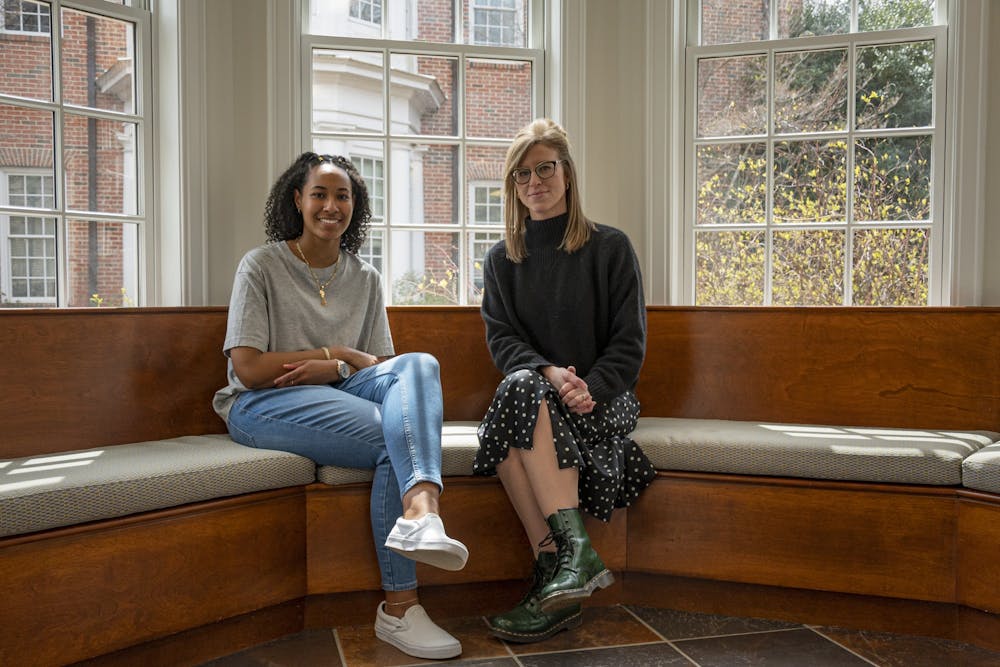During Senior Amaya Gaines’ research at the University of North Carolina Chapel Hill and the University of Chicago, she discovered they were a part of a network of “think tanks” throughout the country. As Gaines prepares to graduate in the spring, she said she’s thinking about the legacy she will be leaving behind and thought that Elon could benefit from a similar program.
“As a graduating senior, it was really important for me to leave something like a healthy organization,” Gaines said. “To see that department become more robust and have more opportunities for students to share numerous interests … to not only gain experiential opportunity but even learn something new about themselves in terms of policy interests.
After winning the Lumen Prize, Gaines created PST 3700: A Public Policy Think Tank as a two-credit course that began in the fall under the mentorship of Dillian Bono-Lunn, professor of political science and policy studies.
As faculty adviser, Bono-Lunn will facilitate conversations that will further the think tank’s progress and encourage students to take charge to decide which areas of public policy to discuss.
“They completely decide what to focus on,” Bono-Lunn said. “Students produce infographics and blog posts and ultimately a policy memo that is done as a team, but those topics are completely driven by their own self interest.”
Students will combine coursework with research to teach others about the basics of policy analysis, but the class will also bridge the gap between academic and professional work.
The think tank will help students develop skills that can translate for a political career, including how to publish policy analyses, policy memos and other shorter form outputs centered around local, state, federal or international policy issues.
Gaines and Bono-Lunn found that students brought their interests and passion to the class, exploring how to add different areas of public policy to their assignments. For example, students who showed interest in economic policy also dabbled in environmental and foreign policy. The cumulation of their work was displayed at their experiential learning showcase at the end of the semester.
“I think that we saw that this can work and we see further opportunities to expand in some of those areas around policy analysis and sharing research,” Bono-Lunn said.
All students’ works are published on the Phoenix Policy Institute website to be read by anyone interested in public policy.
“I think that we saw that this can work and we see further opportunities to expand in some of those areas around policy analysis and sharing research,” Bono-Lunn said.
Gaines said she hopes the think tank will grow into something that will give students more opportunities to explore their political interests even after she graduates so that students not only gain experiential opportunity, but also learn something about themselves in terms of policy interests.
The public policy think tank is open to students of all majors. It does not have any prerequisites, and is available spring semester. If interested, reach out to Bono-Lunn at dbonolunn@elon.edu or Amaya Gaines at againes10@elon.edu.


